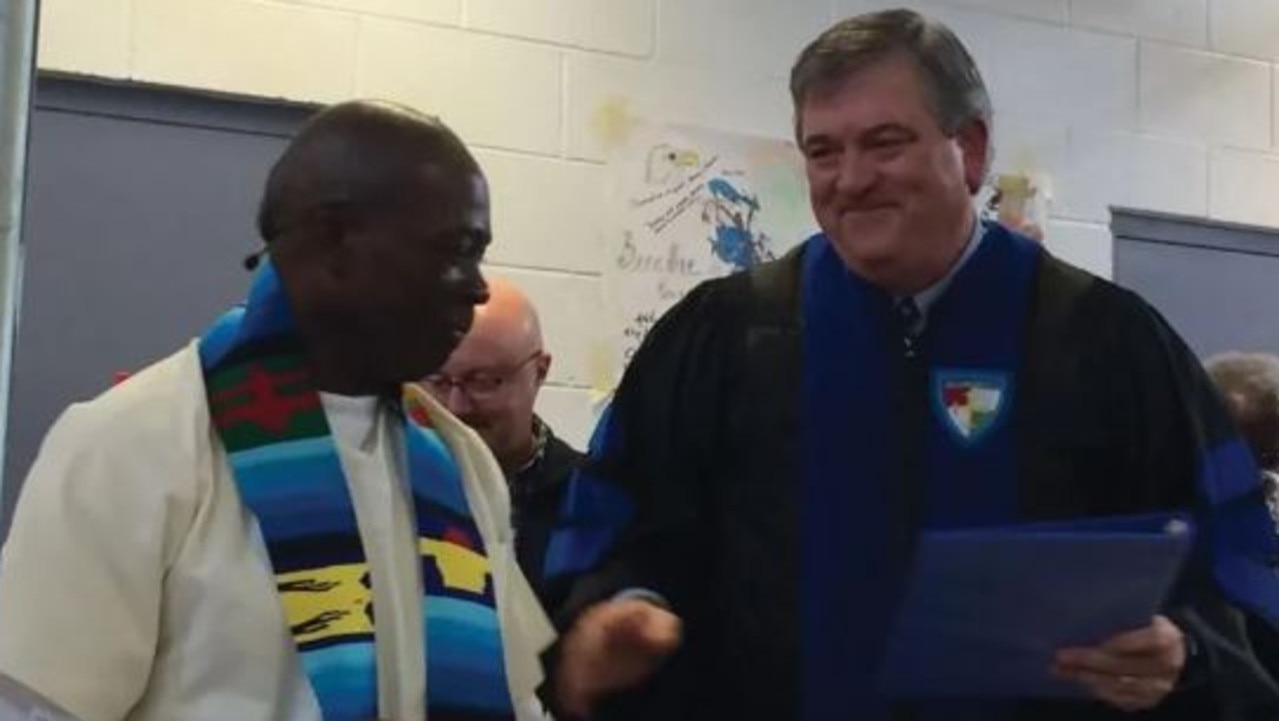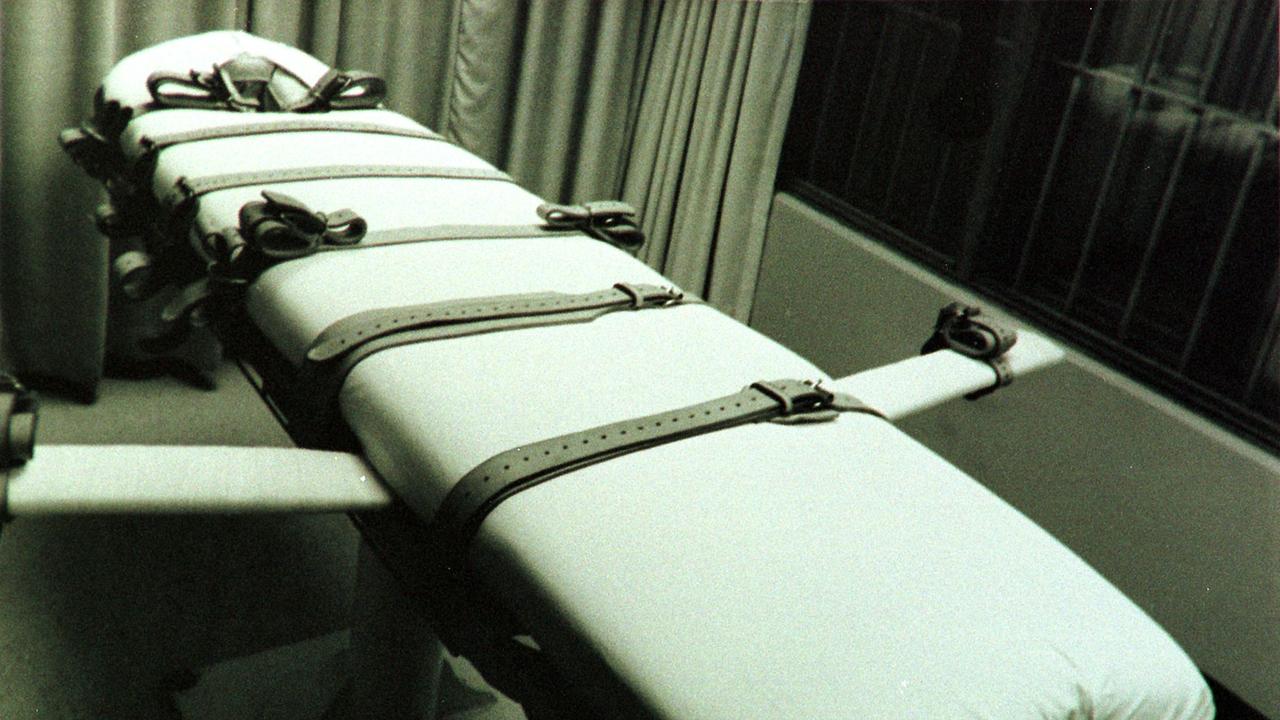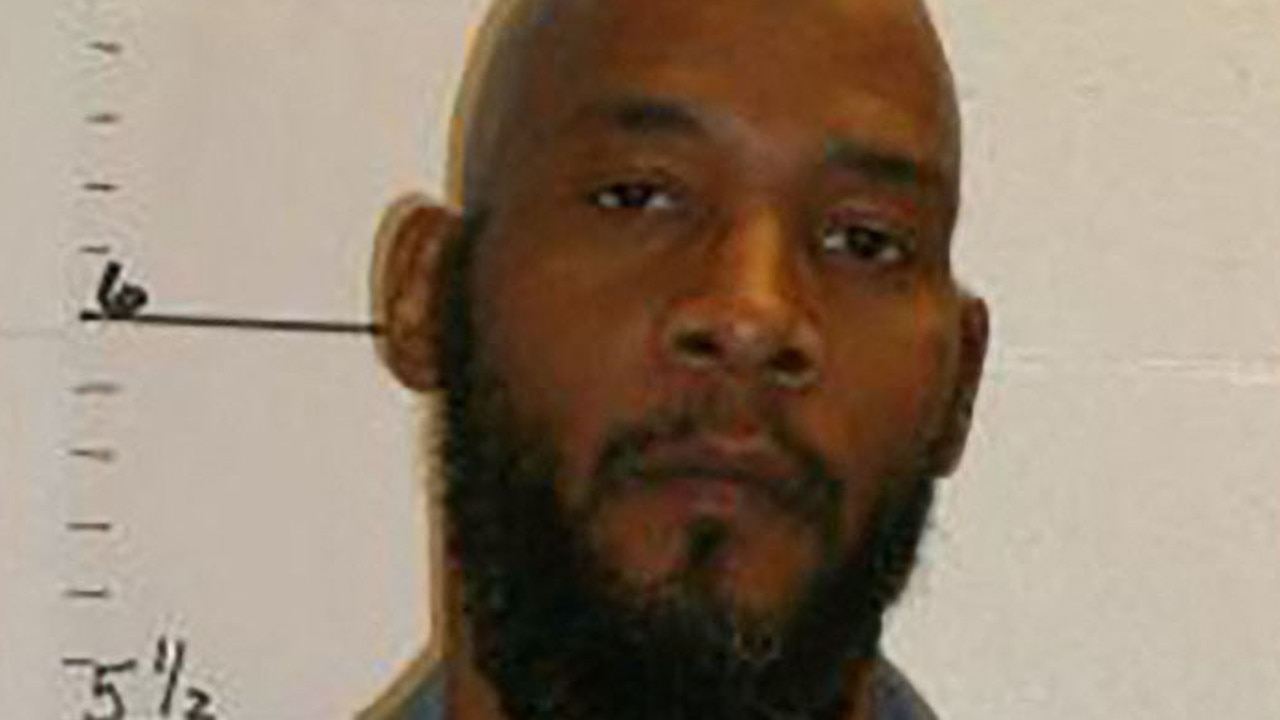‘Innocent’ pastor faces execution in US state of Tennessee
The case of a pastor who has been on death row for almost 30 years symbolises the big problem with capital punishment.
A pastor ordained while he has languished on death row for almost 30 years is among convicted offenders now facing the prospect of executions being restarted in a US state.
There has not been an execution in Tennessee since early 2022 after revelations two inmates had been put to death with lethal injection drugs that had not been properly tested.
But a recent announcement appears to have paved the way for capital punishment to resume in the southern state after a review of authorities’ past failures.
“We should have our protocols in place by the end of this calendar year or at the first week or two of January,” Commissioner Frank Strada told a hearing this month.
“We’ve been working with the Attorney-General’s office on writing those protocols to make sure that they’re sound.”

It means people like Pastor Kevin Burns, who has been on death row since 1995, could again be staring down either a lethal injection or the electric chair – which is still used in Tennessee.
Burns was convicted of felony murder in November 1995 over a fatal shooting for which he was present at but did not fire any shots.
Felony murder is a charge that can be laid when a person is killed during the commission of a separate crime.
It was the night of his 23rd birthday – April 20, 1992 – and the young musician had found himself with a group of men he had not met before.

They drove him to the scene of a fight and handed him a gun, before two men were shot dead during the confrontation in Memphis.
Panicked, Burns fled the state to Chicago before being arrested. Two other men who were convicted of the shooting murders did not receive the death penalty and have already been paroled.
Burns has now run out of appeals and his only chance of escaping execution would be clemency issued by Republican Governor Bill Lee.
“I did make some decisions that I regret, but I did not murder anyone,” Burns has said.
His lawyer Richard Tennent has spoken about how Burns’ case has been a failure of justice, criticising the state-appointed legal representation who failed to argue his innocence at trial.
“They’re the reason he got convicted,” Mr Tennent told Nashville Scene in June 2023.
“Real lawyers should’ve won this trial. We shouldn’t have been arguing over whether he deserved a death sentence – we’d be arguing over whether he deserved any punishment at all.”

Burns met his namesake and now close friend, Pastor Kevin Riggs, when the later visited death row several years ago.
Mr Riggs, who ordained Burns in 2018 and has was co-authored books with the inmate, spoke at a meeting of Tennesseans for an Alternative to the Death Penalty (TADP) this month.
There is a grassroots movement for an alternative to the death penalty in the state where 45 inmates are awaiting execution. Some have been on the list since the early 1980s.
“I go to death row, I try to go most Fridays,” Mr Riggs said.
“I can tell you, over the last three or four weeks there’s been some anxiety about the new protocol.
“They are feeling it after years of not having to go through that.”
Kelley Henry, a lawyer who represents death row inmates, has said there was a federal challenge underway over several aspects of the state’s former protocols.
“The State, through the Attorney-General, agreed to permit that litigation to continue at a normal pace once a new protocol is announced,” she told Action News 5.
”Given the history of misrepresentations made by the state, any new protocol will require thorough review.”
Ms Henry said she did not expect any executions to be carried out until the federal case is completed.

Renewed debate over use of the death penalty in the US was sparked in September when an “innocent man” Marcellus Williams, 55, was killed via lethal injection in the state of Missouri.
He was put to death despite prosecutors raising objections and his alleged victim’s family agreeing he should serve a life sentence.
Capital punishment is a legal penalty in 27 states of the US but Tennessee is among eight states where they are currently suspended.
Mr Riggs said Burns’ story was about a man in the “wrong place wrong time” who made “two critical mistakes” by fleeing the scene and then the state.
“I think everybody can agree … There cannot be capital punishment when you didn’t kill anybody,” he said.
“The person who got the death penalty did not kill anyone.”

Stacy Rector, a Presbyterian minister who leads TADP, said she and members of the group were “very concerned” about news of the new protocol
“We need to wait and see what they’re going to put forth,” she said.
“We obviously hoped that they would continue to work on this and allow the status quo to be in place given just how problematic lethal injection is.
“Regardless of how we carry out executions, the fact that we do it at all based on this system is the real issue. It is damaging and it is full of unfairness and error.”
Race has played a problematic role in death penalty sentences in Tennessee, with 74 per cent of death sentences imposed for crimes involving white victims since 1972.
That’s despite white people making up less than half of victims of crime in the state.
While some want to see executions wound back, Tennessee’s politicians have been busy expanding who can be killed by correctives.
In May, Governor Lee signed a bill that introduced the death penalty in Tennessee for people convicted of child rape, following in the footsteps of Florida.
Ms Rector hoped felony murder could be removed from the crimes that attract the death penalty, meaning people like Burns could not face execution.





